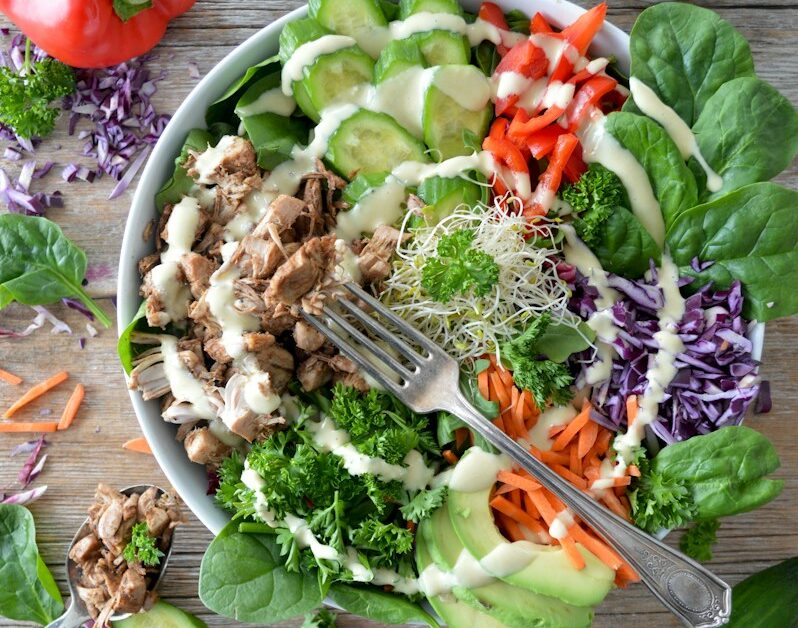Benefits of a Vegetarian Diet for Building Muscle
When it comes to building muscle, many people believe that a diet rich in animal protein is essential. However, this is a common misconception. A vegetarian diet can provide all the necessary nutrients for muscle growth and even offer additional benefits for overall health. By incorporating the right plant-based foods into your diet, you can build muscle effectively while enjoying the numerous advantages of a vegetarian lifestyle.
Protein Sources for Vegetarians
Protein is a crucial component for muscle growth and repair. While animal products like meat, eggs, and dairy are high in protein, vegetarians can obtain sufficient protein from plant-based sources. Here are some excellent protein sources for vegetarians:
- Lentils and Legumes: Lentils, chickpeas, black beans, and other legumes are not only rich in protein but also high in fiber. They provide a steady release of energy and aid in muscle recovery.
- Quinoa: Quinoa is a complete protein, meaning it contains all nine essential amino acids. It is also packed with fiber, iron, and magnesium, making it an ideal choice for muscle growth.
- Tofu and Tempeh: Tofu and tempeh are soy-based products that are rich in protein and low in fat. They are versatile ingredients that can be used in various dishes, such as stir-fries and salads.
- Seitan: Seitan, also known as wheat meat, is made from gluten and provides a substantial amount of protein. It has a meat-like texture and can be used as a substitute in many recipes.
- Nuts and Seeds: Almonds, walnuts, chia seeds, and hemp seeds are excellent sources of protein, healthy fats, and essential nutrients. They can be consumed as snacks or added to meals for an extra protein boost.
Essential Nutrients for Muscle Growth
While protein is essential for building muscle, other nutrients play a crucial role as well. Vegetarians need to ensure they are getting an adequate intake of the following nutrients:
- Iron: Iron is necessary for oxygen transport and energy production. Good vegetarian sources of iron include spinach, lentils, tofu, and fortified cereals.
- Calcium: Calcium is vital for bone health and muscle function. Vegetarians can obtain calcium from dairy alternatives like fortified plant-based milk, tofu, and leafy greens.
- Vitamin B12: Vitamin B12 is primarily found in animal products, so vegetarians may need to supplement or consume fortified foods like nutritional yeast or plant-based milk.
- Zinc: Zinc is involved in protein synthesis and immune function. Vegetarian sources of zinc include legumes, whole grains, nuts, and seeds.
- Omega-3 Fatty Acids: Omega-3 fatty acids have anti-inflammatory properties and aid in muscle recovery. Vegetarian sources include flaxseeds, chia seeds, walnuts, and algae-based supplements.
Meal Planning for Muscle Growth
Planning your meals is essential to ensure you are meeting your nutritional needs for muscle growth. Here is an example of a vegetarian meal plan for building muscle:
- Breakfast: Quinoa porridge topped with mixed berries and a sprinkle of chia seeds.
- Snack: Greek yogurt with almonds and a small piece of fruit.
- Lunch: Tofu and vegetable stir-fry with brown rice.
- Snack: Hummus with carrot sticks and whole grain crackers.
- Dinner: Lentil curry with spinach and quinoa.
- Snack: Protein smoothie made with plant-based protein powder, banana, and almond milk.
Case Study: Vegetarian Athletes
There are numerous successful vegetarian athletes who have built impressive muscle mass while following a plant-based diet. One notable example is Patrik Baboumian, a world-record-holding strongman. Baboumian has been vegetarian since 2005 and has won several strongman competitions, proving that a vegetarian diet can fuel muscle growth and strength.
Conclusion
Contrary to popular belief, building muscle on a vegetarian diet is not only possible but also offers numerous health benefits. By incorporating a variety of plant-based protein sources and ensuring adequate intake of essential nutrients, vegetarians can achieve their muscle-building goals while enjoying a sustainable and ethical lifestyle.
